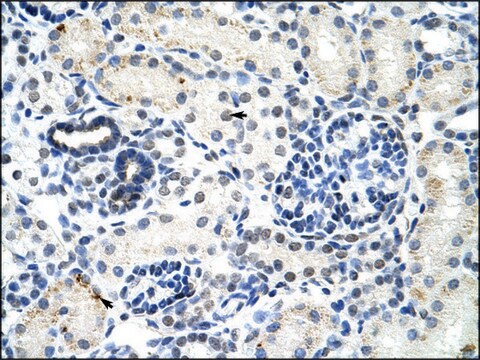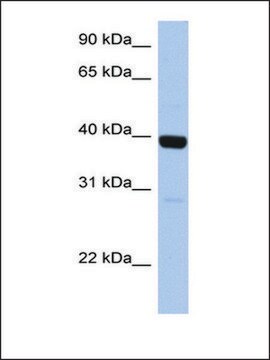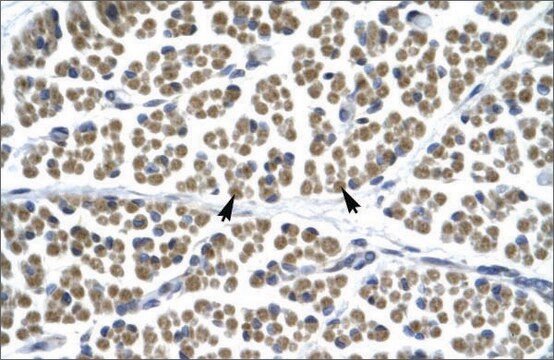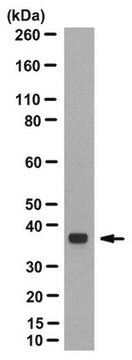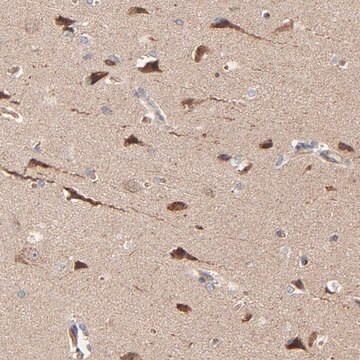AV42146
Anti-PPAP2A (AB1) antibody produced in rabbit
IgG fraction of antiserum
Synonyme(s) :
Anti-LLP1a, Anti-LPP1, Anti-PAPα1, Anti-PAP-2a, Anti-PAP2, Anti-PAP2a2, Anti-PAP2alpha2, Anti-Phosphatidic acid phosphatase type 2A
About This Item
WB
western blot: suitable
Produits recommandés
Source biologique
rabbit
Niveau de qualité
Conjugué
unconjugated
Forme d'anticorps
IgG fraction of antiserum
Type de produit anticorps
primary antibodies
Clone
polyclonal
Forme
buffered aqueous solution
Poids mol.
31 kDa
Espèces réactives
rat, mouse, bovine, human, dog, guinea pig, horse, rabbit
Concentration
0.5 mg - 1 mg/mL
Technique(s)
immunohistochemistry: suitable
western blot: suitable
Numéro d'accès NCBI
Numéro d'accès UniProt
Conditions d'expédition
wet ice
Température de stockage
−20°C
Modification post-traductionnelle de la cible
unmodified
Informations sur le gène
human ... PPAP2A(8611)
Description générale
The lipid phosphate phosphatase phosphatidic acid phosphatase type 2A/lipid phosphate phosphohydrolase type 1(PPAP2A, LLP1) dephosphorylates exogenous lysophosphatidate (LPA), a lipid mediator that stimulates cell proliferation and growth, and is involved in physiological and pathological processes such as wound healing, platelet activation, angiogenesis and the growth of tumours.
Spécificité
Immunogène
Application
Actions biochimiques/physiologiques
Séquence
Forme physique
Clause de non-responsabilité
Vous ne trouvez pas le bon produit ?
Essayez notre Outil de sélection de produits.
Code de la classe de stockage
10 - Combustible liquids
Classe de danger pour l'eau (WGK)
WGK 3
Point d'éclair (°F)
Not applicable
Point d'éclair (°C)
Not applicable
Faites votre choix parmi les versions les plus récentes :
Certificats d'analyse (COA)
Vous ne trouvez pas la bonne version ?
Si vous avez besoin d'une version particulière, vous pouvez rechercher un certificat spécifique par le numéro de lot.
Déjà en possession de ce produit ?
Retrouvez la documentation relative aux produits que vous avez récemment achetés dans la Bibliothèque de documents.
Notre équipe de scientifiques dispose d'une expérience dans tous les secteurs de la recherche, notamment en sciences de la vie, science des matériaux, synthèse chimique, chromatographie, analyse et dans de nombreux autres domaines..
Contacter notre Service technique
